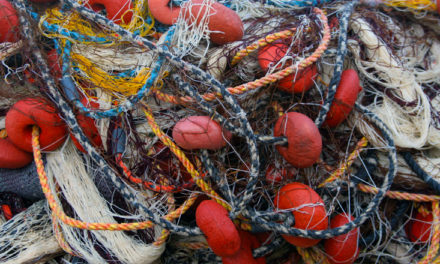Treasure In The Deep
Tena tātou katoa e te iwi mīhana… (Greetings to all the people in mission),
The whakataukī (Māori proverb) for this post is: “He kino ra he kino, no tau o te wai” [I may not be the best looking, but I’m the deepest part of the river]. This proverb is credited to Putanga, a Ngati Porou tribal member from Rangitukia (East Cape of New Zealand’s North Island) who was accused of being ugly by the accomplished warrior Tamahae. To avoid a confrontation, for which Putanga was not skilled, he absorbed the jibe and wisely countered by claiming his facial features hid other valuable aspects of his character. The deepest part of the river, beneath the rapids, is where the largest and most prized eels live.
COVID-19 has pulled back the curtain on leaders who have relied on blustering confidence.
If I were to apply this proverb to Scripture it would be Samuel’s rejection of Eliab (and selection of David), “The LORD does not look at the things people look at. People look at the outward appearance, but the LORD looks at the heart” (1 Samuel 16:7 NIV). We live in an age where ‘image is everything’ and we’re seeing the futility of that perspective being played out in politics and organisations right now. COVID-19 has pulled back the curtain on leaders who have relied on blustering confidence, who look good and talk a good game. The pandemic is Toto revealing the true nature of the wizards of Oz. The true mettle of leaders is being tested. Can they provide realistic hope for what lies over the horizon of the global pandemic and economic crisis, and do we trust them to take us there?
To lead well into the future requires discernment, discernment requires information, information requires research and it all requires robust assessment. Whether a leader undertakes this themselves or has a staff army doing it for them, they need stuff of real substance to draw on. Casting a vision without substance anchoring it is just vain pursuit. You can feign con-fidence, but without the “fidere” (Latin: substantive faith), all you are left with is con. Leadership without substance is nothing more than a con. You can have the best face, but the shallowest pool where only the little elvers (baby eels) hide beneath the rocks.
We must not assume lack of depth just because a pool produces differently to what we expect.
There are many styles of leadership and many different types of treasures to be found in their depths. An entreprenuerial leader’s gifts may be in pioneering project management. A truly pastoral leader’s specialty is probably in people care and development. Thought leaders bring into the mix conceptualising and articulating how things can be. We must not assume lack of depth just because a pool produces differently to what we expect. The key to collaboration is learning to appreciate what lies beneath—the treasures that others are able to contribute. You soon find out how shallow leaders are if they’ve got little of substance to bring to the table.
This line of thinking kicked off for me when I was invited to be a keynote speaker at the Encontro Sepal 2020, a conference hosted by missions leaders for Brazilian church leaders (Sept 25-26). Their theme was “Life within life – countering shallow relationships” and their focus was on Zygmunt Bauman’s philosophy of Liquid Modernity, and how Liquid Modernity leads to shallowness and triviality in relationships. Now THAT’S deep. There was no hint of ‘dumbing it down’ for this conference.
My keynote, “The Great Commitment” was pre-recorded and subtitled for the conference. It’s online without subtitles here if you wish to view it. I then joined a live feed to answer questions that followed—and they flowed thick and fast, I had to desperately pray for the gift of diplomacy! For example, ‘should Christians pursue political power so we can legislate our perspectives on social issues’; and ‘how can we get mega-church leaders to be open to collaboration’? If you watch my 26 minute keynote you’ll see why my perspective on how to minister and witness in an age of liquid modernity led to those sorts of questions being asked. My answers were along the lines of, “pray”, “trust the Holy Spirit”, “follow the Scriptures”, “first remove the log from your own eye”. I knew enough about polarised opinions in Brazil to try and avoid appearing partisan.
After a brief overview about what has led to the fragmentation and relativism that Bauman refers to as “Liquid Modernity”, I argued in my presentation that the Church needs to respond with covenantal unity, as a missions strategy (rooted in John 17:18-25, from which I develop my “Great Commitment” missiology). I introduced the idea that we shouldn’t be imposing our beliefs on those outside of our covenantal community, but that we would be more effect as witnesses by living as a community in such a mutually transformative way, for the benefit of all in society, that we attract people to it—explaining it as we live it out.
Depth of relationship commitment is a valid Biblical strategy for the mission of God.
That is not to suggest a kind of universalism or reclusive faith, but that depth of relationship commitment is a valid Biblical strategy for the mission of God—it is God’s shalom-Kingdom intention for all humanity, the locus of God’s blessing. Everything good and valuable is found in a deep abiding unity. Not where tensions are necessarily resolved, but where we learn to allow the tensions of difference to shape or transform us. To value the produce of our deep pools we bring to share for the benefit of all. THEN the world will believe and know that the Father lovingly sent the Son.
So let’s dive into our river’s depth, finding treasures within to share, as we #stayonmission.
Whakapaingia te Atua, to tatou kaiunga ki te ao whanui (May we be blessed as God sends us into the wider world),
Jay






